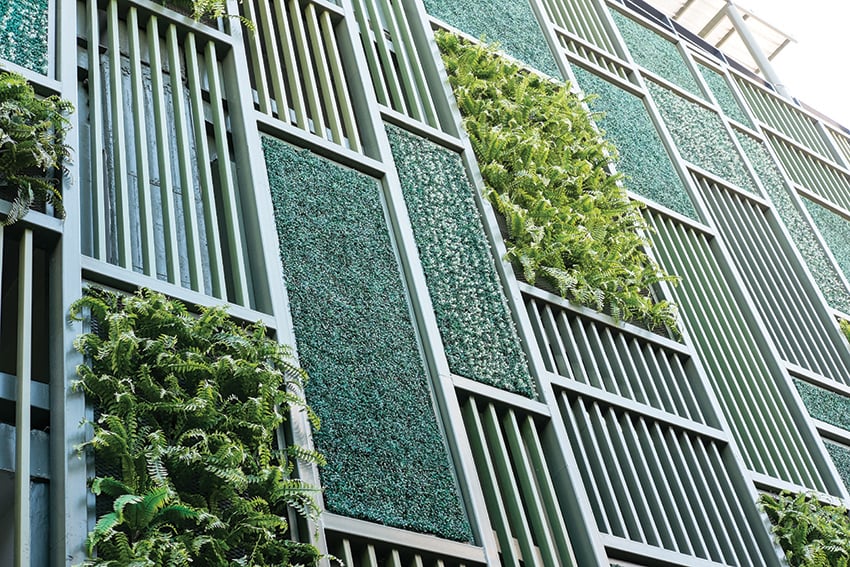Optimization of VAT cash flow
In order to optimize the liquidity position, the following could be considered:
Change the VAT return filing period
Businesses that are in a structural VAT refund position or that expect to end up in such a refund position because of the COVID-19 crisis due to a fall in turnover can opt for a change in the VAT return filing period from, for example, quarterly to monthly. This way, businesses will receive the VAT refund more quickly and will be able to use these funds sooner for their own business. Vice versa, businesses that are in a structural VAT payment position should consider to apply a longer VAT return filing period, such as a quarter or a year. This would effectively postpone the VAT payment and allow the business to have access to these amounts for a longer period of time. The Dutch Tax Authorities apply their own guidelines when changing VAT return filing periods, including the time by which the request for a change in period must ultimately be received. If you would like to know more, please contact us.
Filing VAT returns as a VAT fiscal unity
Filing VAT returns as a VAT fiscal unity can also be taken into account in order to optimize the liquidity position. Within a VAT fiscal unity, the choice can be made to submit one single consolidated VAT return for all companies that are part of the VAT fiscal unity, or to have each company file a VAT return on a standalone basis. A single consolidated VAT return can be used to achieve that VAT payment positions of some companies in the VAT fiscal unity can be offset against VAT refund positions of other companies in the VAT fiscal unity. In any case, it is advised to reassess the size and composition of the VAT fiscal unity to ensure further VAT optimization.
Assignment of VAT refunds
Pre-financing of VAT in the case of supplies to business customers, who are fully entitled to a VAT refund, can be avoided by means of a transfer (assignment) of the VAT refund right. The VAT refund of the business customer to the Dutch Tax Authorities will in such cases be transferred to the supplier by means of an assignment. The supplier can then use the VAT refund taken over to pay his VAT debt to the Dutch Tax Authorities. The means of assignment requires coordination with various divisions of the Dutch Tax Authorities and also between the businesses involved. Therefore, this is (only) a suitable means in situations where large amounts of VAT are invoiced.
Cash accounting
Cash accounting applies by operation of law or can be applied on request in situations where a business supplies goods and/or services to mainly end-consumers (B2C). Under the cash accounting system, VAT on turnover is only due to the Dutch Tax Authorities if the sales price is received from the customer. Normally, VAT becomes due at the time the invoice is or should have been issued. In practice, many businesses refrain from applying cash accounting for administrative reasons. Under the current market conditions, it may be useful to reconsider the application of cash accounting for VAT purposes.
Invoicing
Another way of improving the liquidity position would be to issue invoices in a later VAT filing period, so that the VAT has to be paid to the Dutch Tax Authorities at a later point in time. For example, if you intend to invoice at the end of March, it may be better to issue the invoice at the beginning of April instead. Please note that the invoice must ultimately be issued the fifteenth day of the month following the month in which the service was provided.
Special crisis measures
In addition to the above mentioned measures, special crisis measures have been announced by the Dutch government. On request, postponement of VAT payment at 0.01% interest will be granted to businesses who have been or will be confronted with liquidity problems due to the COVID-19 crisis. Also fines for late payments of VAT will be waived provided the VAT return was submitted on time and correctly.
After the request for postponement has been received, the Dutch Tax Authorities will cease all tax recovery measures and businesses are granted a three-month postponement of payment. The postponement takes effect immediately. It is also possible to request a postponement for a longer period. In that case, the Dutch Tax Authorities will ask for more information, possibly including a third party expert's statement.
Although the request for postponed payment will in some cases also be regarded as a declaration of inability to pay based on policy of the Dutch Tax Authorities, it may be advisable to file a separate declaration of inability to pay to the Dutch Tax authorities because of the of director’s liability.
Because there are also possible disadvantages to requesting for postponement of payment and filing a declaration of inability to pay, we advise to consult your adviser in order to make a careful consideration.
The exact composition of the announced crisis measures is not yet known. Because of this, changes and further conditions can not be ruled out.
VAT relief on bad debts
VAT paid to the Dutch Tax Authorities can be reclaimed if the customer does not pay the invoice. In case of bad debts, the VAT refund can only be claimed once it is certain that the invoice will not be paid by the customer. VAT must be reclaimed no more than one year after the claim is due and payable. Refund of VAT already paid to the Dutch Tax Authorities must be requested in the regular VAT return. When applying the aforementioned cash accounting system, VAT on bad debts does not need to be pre-financed.
The right of a VAT refund in case of bad debts ceases to exist when the purchase claim gets converted into a loan. Despite the fact that, in such cases the business might also be confronted with non-payment, it is assumed that such non-payment relates to the rendered loan. Do you wish to provide your customer with more air to breath when meeting their payment commitments? In that case, you should consider to grant the customer postponement of payment. In case of non-payment, we believe there are good arguments to claim a VAT refund from the Dutch Tax Authorities.
Discounts
When granting discounts, a refund of VAT previously paid can be claimed for the amount of the discount. This right of refund also exists when the entire claim is wholly or partially canceled or disclosed. Please note: wholly cancelling or disclosing a claim may trigger VAT deduction limitations. Therefore, if you are considering such arrangements with your customers, let yourself be advised well in the process.
Cancellation and no shows
The vast majority of events has been cancelled as a result of the COVID-19 measures. When events are canceled, there are possibilities to reclaim VAT already paid to the Dutch Tax Authorities. The underlying idea behind this is that effectively no provision of services took place and without this, VAT should not have been levied. In practice, large amounts are involved. This includes among others (entry) ticket prizes for sports matches, theater performances, festivals, hotels and fitness subscriptions.
Other possibilities to improve your VAT position
Of course there could also be other possibilities to optimize the VAT cash flow within your business or specifically for the business sector in which your business operates. Loyens & Loeff has a full-service Indirect Tax practice. Our experts are experienced in improving the VAT position of businesses.
Contact
Should you have any questions regarding the abovementioned, please feel free to contact Gino Sparidis and Bart Heijnen or your usual Indirect Tax adviser at Loyens & Loeff.








